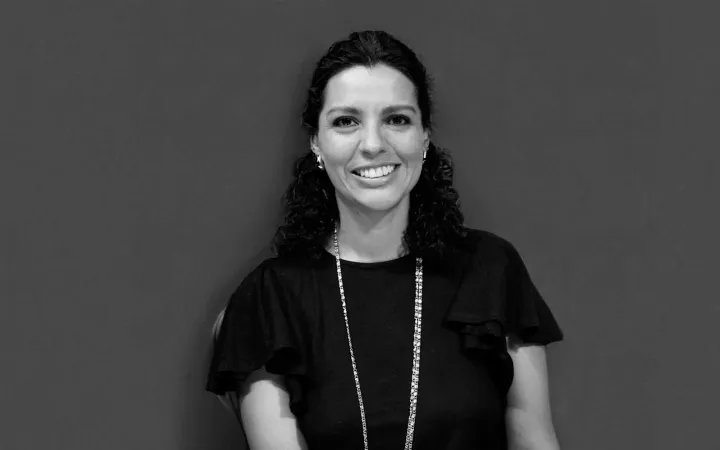
Por Frida Mendoza
Un pasamontañas a la mitad, labios pintados, pancarta y pañoleta morados; top a la cintura, short y tenis negros; un pañuelo verde y la palabra gorda pintada en la panza. Así luce Madam Petra del Bosque para la cámara de Mónica González, fotoreportera del diario El País, en la marcha del 25 de Noviembre, en la publicación habla de gordofobia, belleza hegemónica y violencia estética.
Cuando pensamos en la marcha del 25 de noviembre, Día Internacional de la Erradicación de la Violencia en Contra de las Mujeres y Niñas, lo hacemos en la violencia física, en los golpes, en los feminicidios, en el acoso sexual, las agresiones visibles que son cada vez más (¡por fortuna!) condenadas. Pensar en contingentes marchando y gritando en contra de la violencia estética y de la fobia a los cuerpos no hegemónicos, no delgados ni de “revista”, parecería una nimiedad.
Sin embargo, de “nimiedad” no tiene nada porque la gordofobia es definida como un tipo de discriminación y las acciones realizadas desde esta perspectiva son violentas tanto para niñas como para adolescentes y mujeres adultas.
En cifras, la Encuesta Nacional sobre Discriminación 2022 del Inegi revela que el 23.7% de la población mayor de 18 años afirma haber sido discriminada, entre algunas cosas por su peso o estatura. Comparada con la edición anterior de esta encuesta en 2017, hubo un aumento del 3.5%, la discriminación escala.
A la par de esto, la producción de contenido sobre gordofobia aumenta y cada vez es más común ver testimonios que dan cuenta de una discriminación que está hasta en la sopa y, sinceramente, es conmovedor y doloroso saber que somos tantas las que hemos pasado por un episodio en el que nuestros cuerpos están bajo la lupa y si no me creen, lean este potentísimo ensayo de la escritora María Fernanda Ampuero.
Porque hablar de discriminación y de dejar atrás la idea preconcebida de que un cuerpo gordo “no está sano” es urgente para salvar vidas, porque así como la violencia física mata, la violencia ejercida por quienes supuestamente se “preocupan” por la salud de alguien para que baje de peso a costa de lo que sea, también puede matar lentamente, o dejar un daño a futuro.
Hace un par de semanas participé en un encuentro interdisciplinar de mujeres llamado Constelación de Flores donde pude moderar la mesa sobre corporalidad en la que participaron Alejandra Oyosa, Isabel Sesma y Diana Flores quienes desde sus trincheras como comunicadora, modelo y nutrióloga -respectivamente- fungen como activistas y voces necesarias para que la discusión no solo se retome cuando algún caso se viraliza, sino para reiterar que el respeto y la no violencia debe ser de todos los días.
En el evento no pudimos dejar a un lado la salud y la abordamos desde experiencias propias en las que es común ser "diagnosticadas" tanto por cualquier persona como por profesionales de salud quienes antes de hacer un análisis médico, todo padecimiento puede atribuirse a la gordura porque sí y cuestionarlo signifique recibir comentarios violentos, tanto en la vida real como en redes sociales.
También hablamos sobre belleza y las diferencias donde la violencia estética la vivimos todas para encajar en estereotipos de belleza donde las mujeres blancas, altas, feminizadas y delgadas parecieran ser las únicas merecedoras de respeto pero cuando añades el factor del peso, se es aún "menos persona" si eres gorda.
Fue interesantísimo compartir con ellas pero también que otras personas nos escucharan porque no debería ser normal que te feliciten por bajar de peso a costa de sufrimiento, no debería de ser normal escuchar que hay mujeres que iniciaron su primera dieta antes de los 10 años, no debería ser normal que nos receten medicamentos para bajar de peso cuando vamos por algo totalmente distinto al médico. No debería ser normal que ser gorda sea una ofensa y que para muchas por el hecho de existir o usar cierto tipo de ropa se les reclame que promueven “la falta de salud”.
Si queremos niñas y mujeres libres, dejemoslas existir y no vulneremos su integridad ni su bienestar físico o mental a costa de un estándar inalcanzable. Contra la gordofobia este 25N, y siempre.
*Frida Mendoza es reportera y editora originaria de la Ciudad de México. Cuenta con 6 años de experiencia como periodista digital y de investigación trabajando principalmente temas de derechos humanos, género, feminismo, salud y metrópoli en distintos medios digitales como Emeequis, Malvestida, FrojiMX, MCCI, entre otros. Ha participado como columnista en Opinión 51 y es coautora en el libro "Las 7 mafias chilangas", editado por Grijalbo en 2023.
Las opiniones expresadas son responsabilidad de sus autoras y son absolutamente independientes a la postura y línea editorial de Opinión 51.
Más de 150 opiniones a través de 100 columnistas te esperan por menos de un libro al mes.






Comments ()